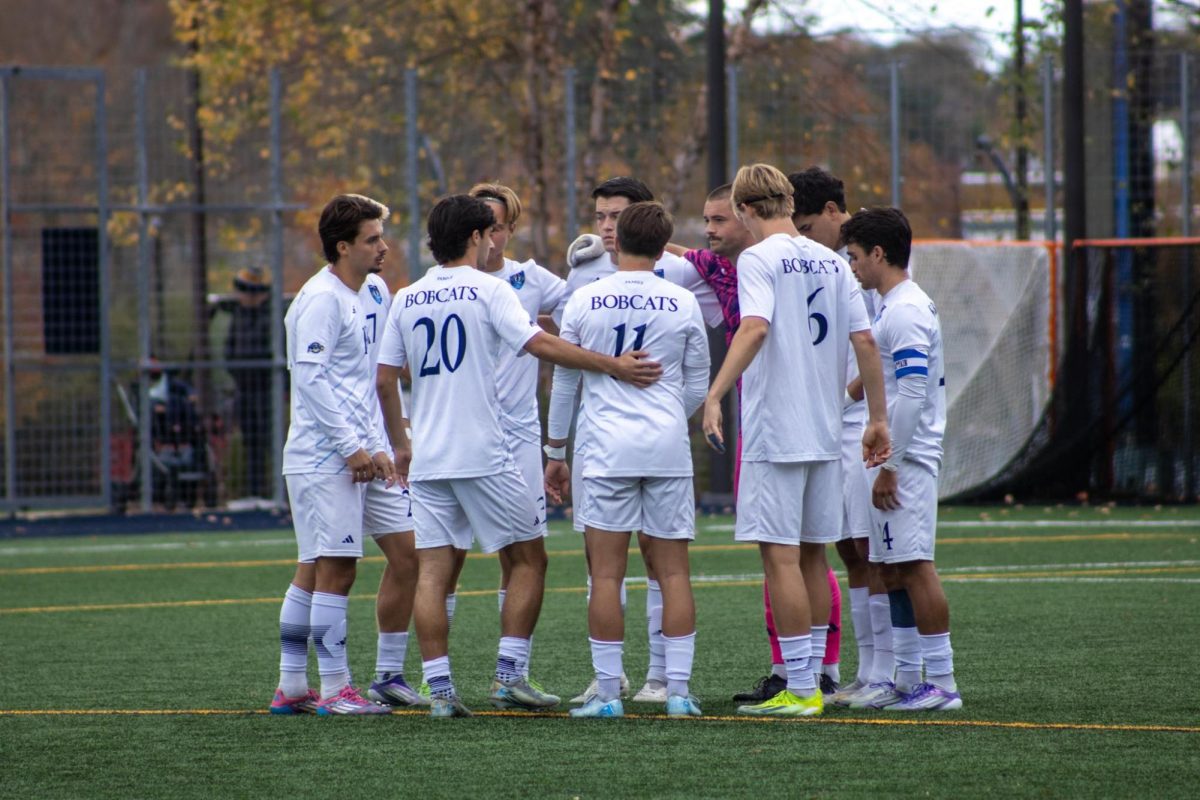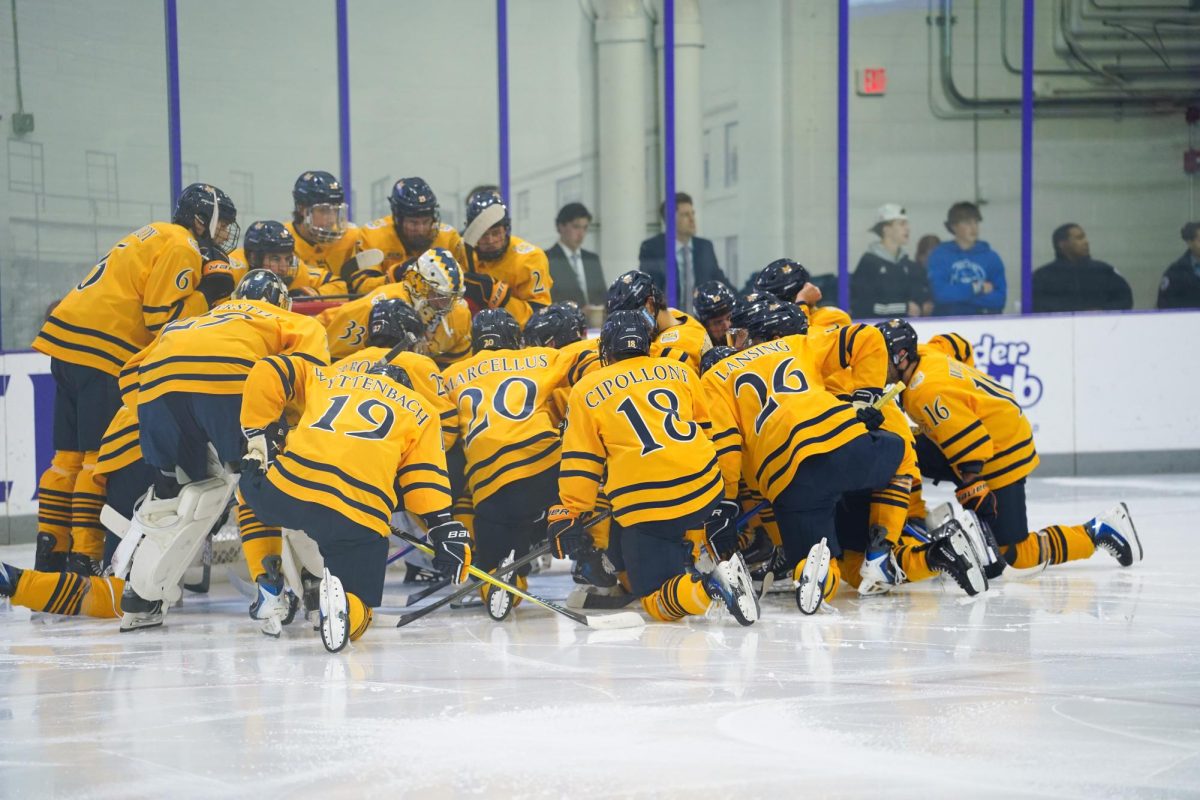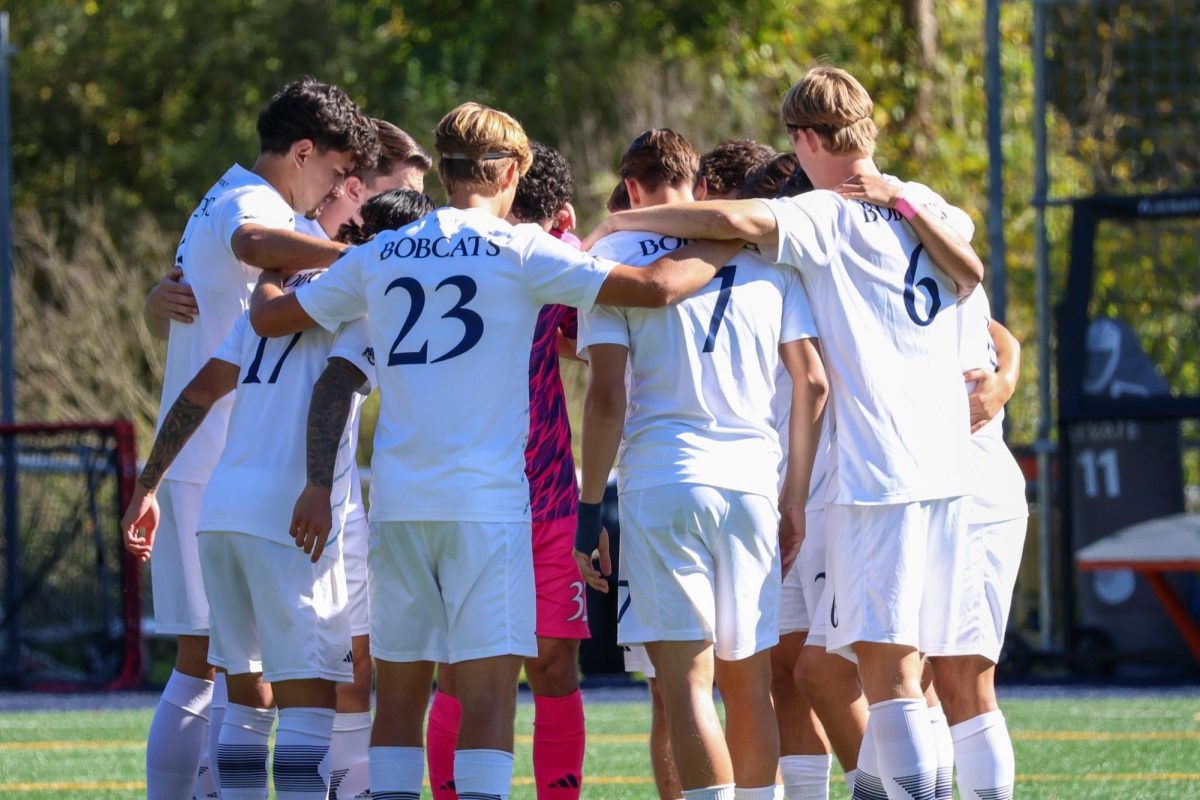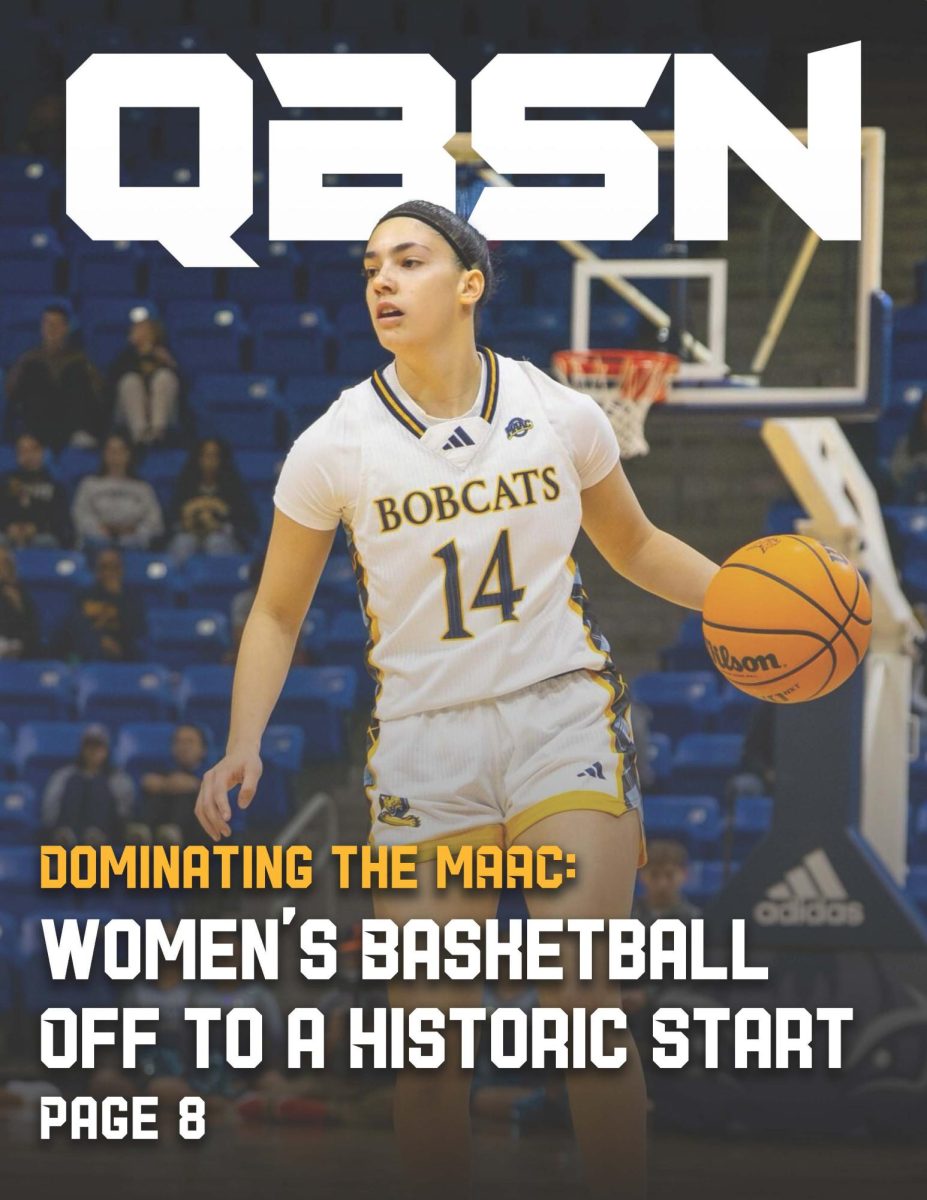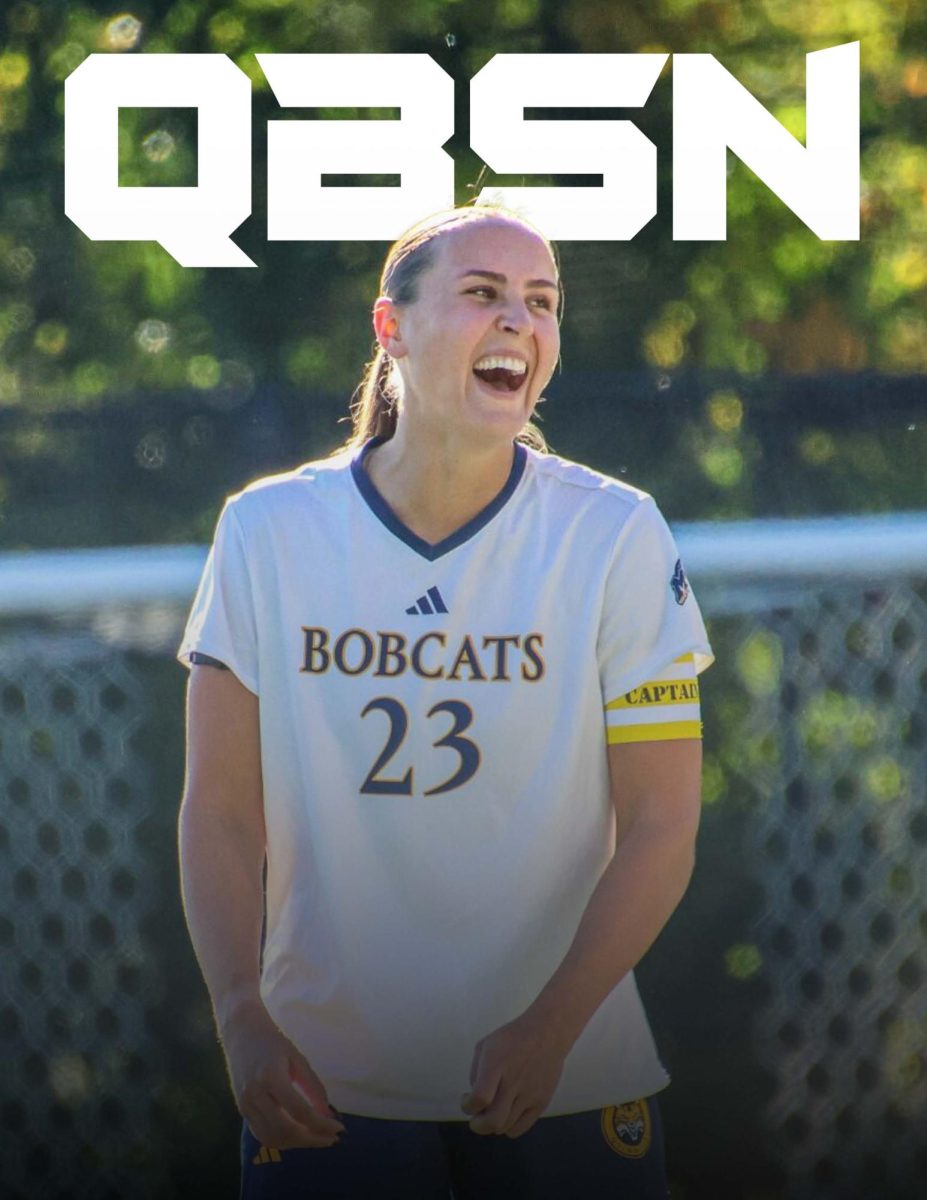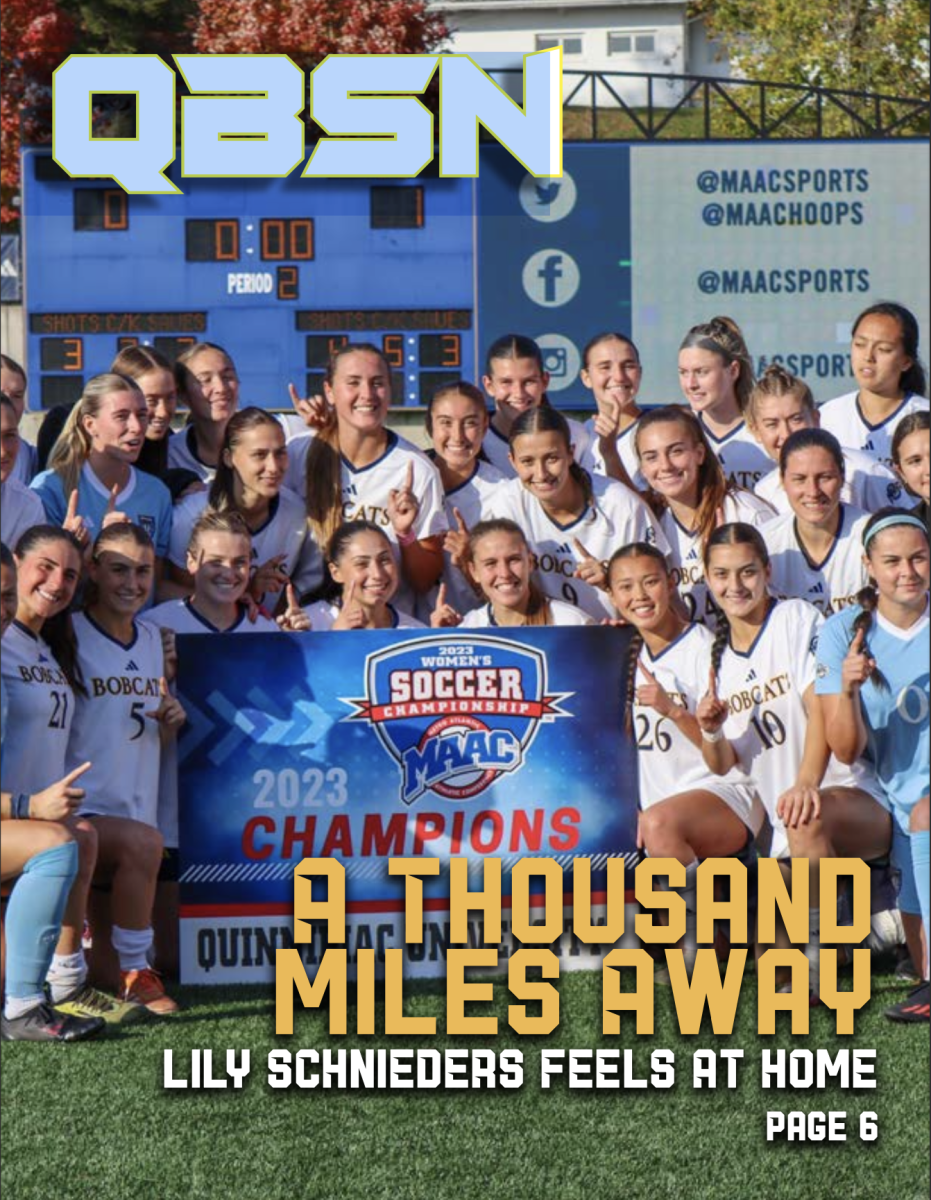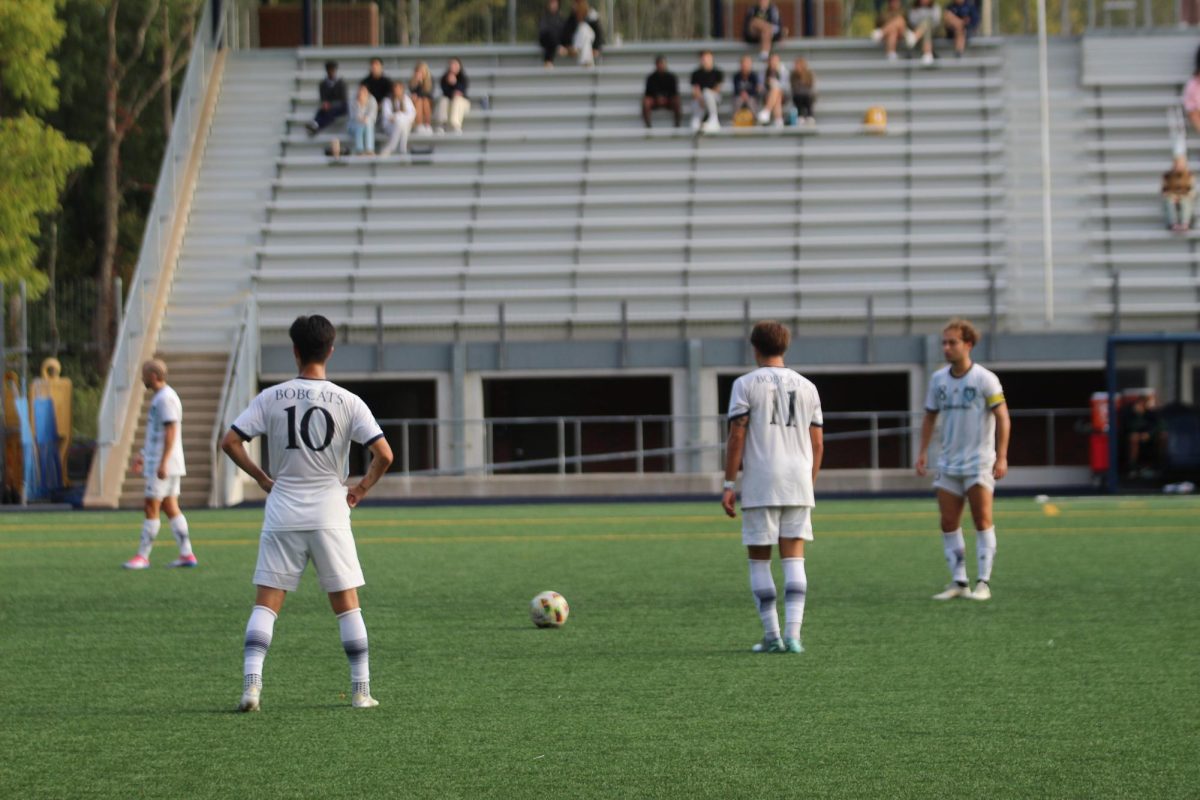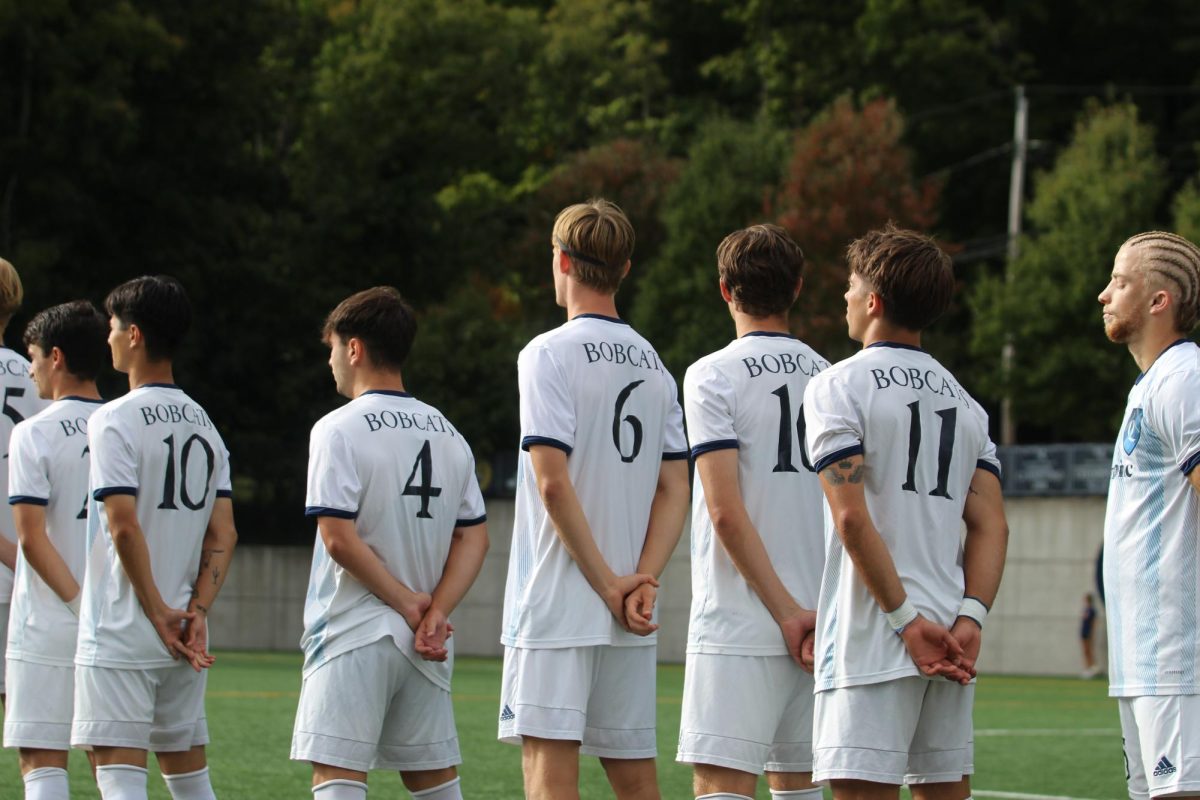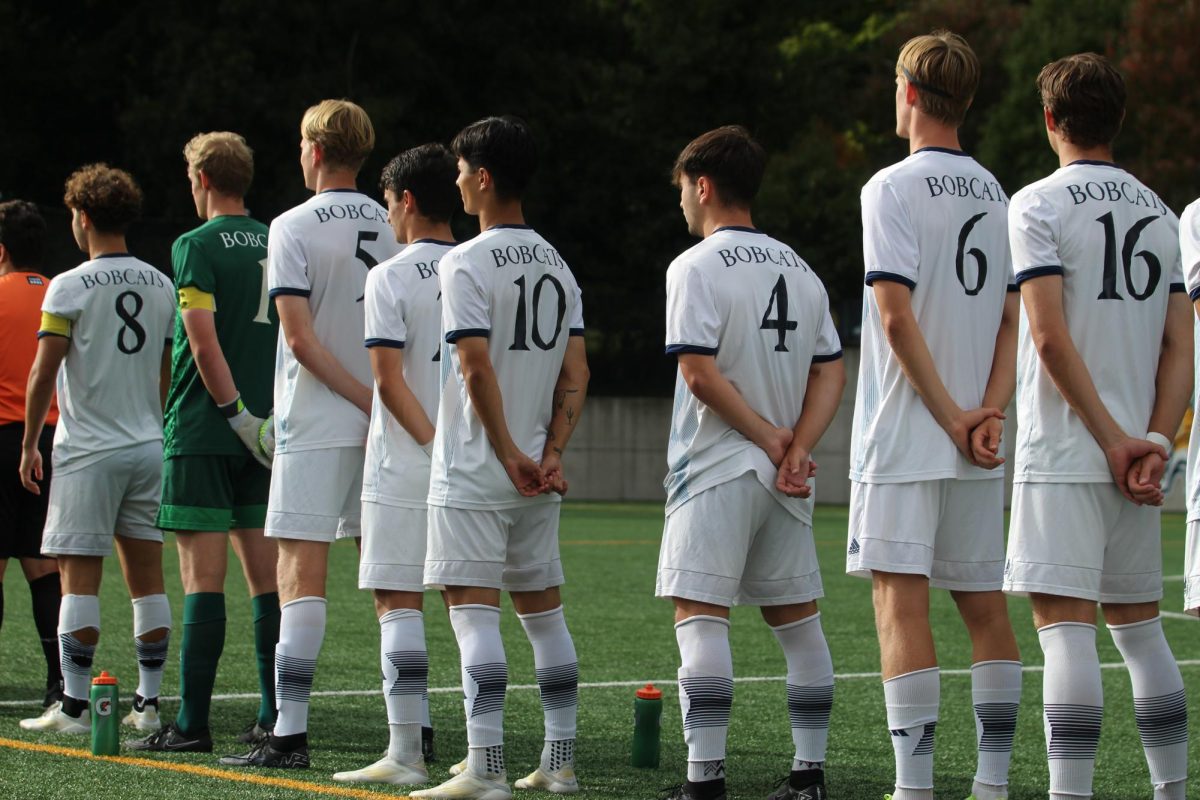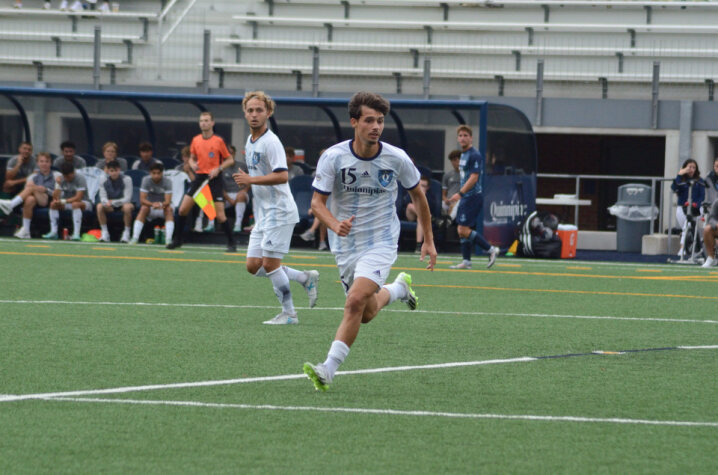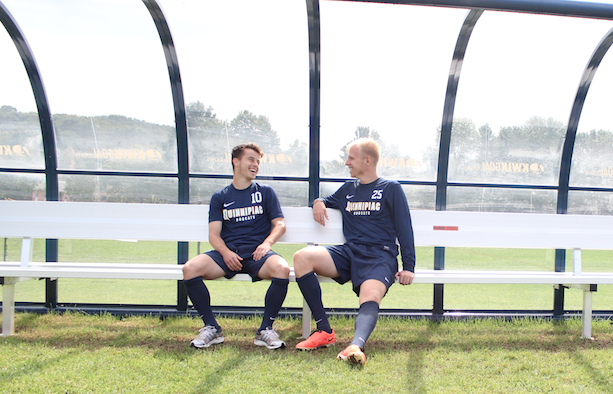
Leaving your home is always tough, and for freshman Max Rothenbucher, he didn’t just leave his home. He left his country. Knowing there would be a little bit of home at Quinnipiac University helped make his decision easier, though. That little reminder of home is junior defenseman Tobias Esche, a fellow German.
Rothenbucher and Esche have already developed a bond together that goes further than just the soccer field. They are constantly joking around with each other and are always all smiles. The two German-born athletes are a long way from home, but they each take comfort in having a fellow countryman here.
Rothenbucher, a midfielder for the men’s soccer team, left his life in Germany when he decided to come to the United States to further his education while still playing soccer, the game he loves. He was born in Munich, Germany and spent the first 21 years of his life there.
Rothenbucher grew up playing soccer, and at a young age he was given the opportunity to play in the system of one of the most prestigious and well-known clubs in Germany: Bayern Munich FC. Rothenbucher was in the system for 10 years until he decided to take his talents across the ocean to play Division I college soccer at Quinnipiac.
For many prospective college students, the thought of leaving home to go to college can be difficult and scary, but the thought of leaving their country to go to a school on the other side of the world is unfathomable. Unafraid of the change, Rothenbucher jumped at the opportunity.
“It wasn’t really a tough decision because it’s exactly what I want to do,” Rothenbucher said. “I want to study and play soccer at the same time. That’s not possible in Germany so basically it was not a difficult decision really.”
The transition for anyone from one country to another is something that takes some getting used to. In addition to all of the adjustments on the field that Rothenbucher has had to make, there are adjustments off the field that he has had to make as well. Whether it is the culture, the food, or just day-to-day life, it is a big adjustment for anyone. Rothenbucher said he has not had too much of a culture shock since coming to America, although he does admit it is different and will take some time to fully adapt to a new culture.
“It’s quite different,” he said. “It’s not that I don’t like it but it’s just different. It takes me some time to adapt. But everyone is really nice here so they make it pretty easy for me to adapt to the new lifestyle.”
Esche, who transferred to Quinnipiac after playing for one season at the University of North Carolina, knew some of the struggles that Rothenbucher would go through when he came to America. He was willing to help his new teammate adjust in any way he could, even before Rothenbucher came to the United States.
“I just tried to give him a general overview of how the U.S. is,” Esche said. “… It is really nice for me personally; having someone from home makes it feel like home. Being from the same culture is really nice for me and I think for the team as well because it gives us diversity in general.”
Men’s soccer head coach Eric Da Costa used the fact that he had a fellow German on the roster when he was going through the recruiting process. It helped Rothenbucher and made him feel more comfortable when making his decision knowing that his future teammate was already willing to help him and be there for him before the two had even met.
“He works just as hard if not harder than everyone else on all the small details.” – Eric Da Costa, head coach
When a team has someone like Esche, it can make the transition easier for a player like Rothenbucher. Da Costa used the relationship with Esche and Rothenbucher as a way to help develop a relation between Rothenbucher and the university. “We have Tobias here and that helped. It’s always easier getting a second German here when we already have a first German,” Da Costa said.
Though Esche wanted to encourage Rothenbucher to attend Quinnipiac, he gave him advice that would help with his shift to college soccer in general.
“He helped me a lot and he gave me a really good picture,” Rothenbucher said. “We were in touch via Facebook a lot, so it definitely helped me get a better picture of what it is like here and make my decision even easier.”
Esche was all smiles when he was talking about the recruiting process for Rothenbucher. He had the opportunity to help Da Costa and relished in the opportunity to get another German on the roster.
“I guess I had kind of an influence,” Esche said. “I just tried to give Max an overview of how this school is, but I didn’t try to force him to come here.”
Rothenbucher and Esche can often been found walking around campus together, and Esche is doing everything he can to help Rothenbucher make the adjustments and get used to his new country. The two have been teammates and friends for just a few months, but it is clear in the way they interact that they have created a special bond that will help both on and off the field.
Before he came to Quinnipiac, Rothenbucher helped his club to a U-23 Regional Championship in the German Division in 2013-14, and in 2012 his U-19 team won the Bundesliga Division South Championship. Rothenbucher has had his share of success playing in one of the best programs in not only Germany, but in the world, and has gained plenty of experience after playing in Germany. His experience is something that Da Costa believes can be an asset to the team and program.
“We learned where he came from, and obviously that jumps off the page at you,” Da Costa said. “We want Max to help all our players, help them understand just how professional you have to be all the time in order to not only be good but be great. He comes from one of the best youth academies in the world and he works just as hard if not harder than everyone else on all the small details.”
In addition to his off-the-field adjustments, Rothenbucher has also had to adjust on the field to a new team, new teammates, and a new style of play. Rothenbucher sat out the last year and a half in Germany due to an injury, and while the time off and change in playing style could have affected his play, Rothenbucher has worked to get more comfortable with the North American game.
“There are differences in tactical stuff and the game was a little bit quicker back home,” Rothenbucher said.
Playing in Bayern Munich’s system has helped Rothenbucher grow as a player and helped him develop into the finesse player he is today.
“I had great coaches and great players,” Rothenbucher said. “If you compete everyday on a high level you have to improve so it was definitely good for me.”
Rothenbucher will use his experience to help lead the Bobcats and try to win a second straight MAAC championship and clinch another berth in the NCAA tournament. Rothenbucher has already shown his skills on the pitch, even early in the season. He picked up an assist against Providence in the team’s 3-0 win, and he scored his first goal of the season and of his collegiate career against Columbia.
Rothenbucher has proven to be a difference maker for this team early on, and looks to continue to do so for not only this season, but for his four years here at Quinnipiac. Da Costa thinks Rothenbucher will help this team, and will be a leader for this team even as just a freshman.
“You want to have success. Short term success is easy; long term success and sustaining long term success is difficult,” Da Costa said. “It’s all about professionalism and being professional. Things don’t always go your way but you need to continuously work for them and try to improve yourself all the time and Max will help us with that with his experience. You can be at Bayern Munich but you still have to put the work in because you need to continuously improve yourself and I hope that rubs off on the rest of the team.”



